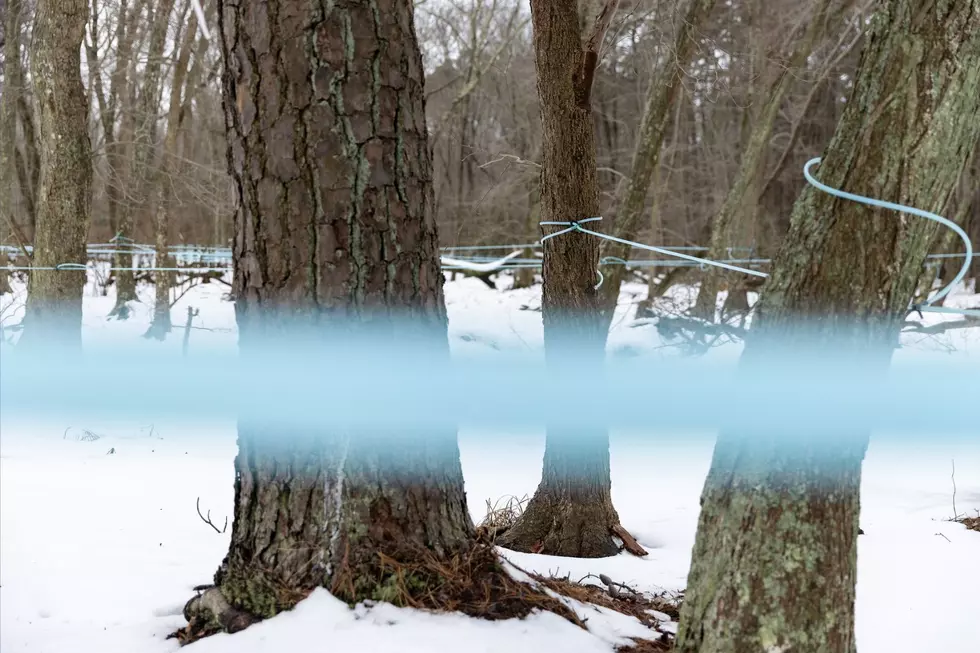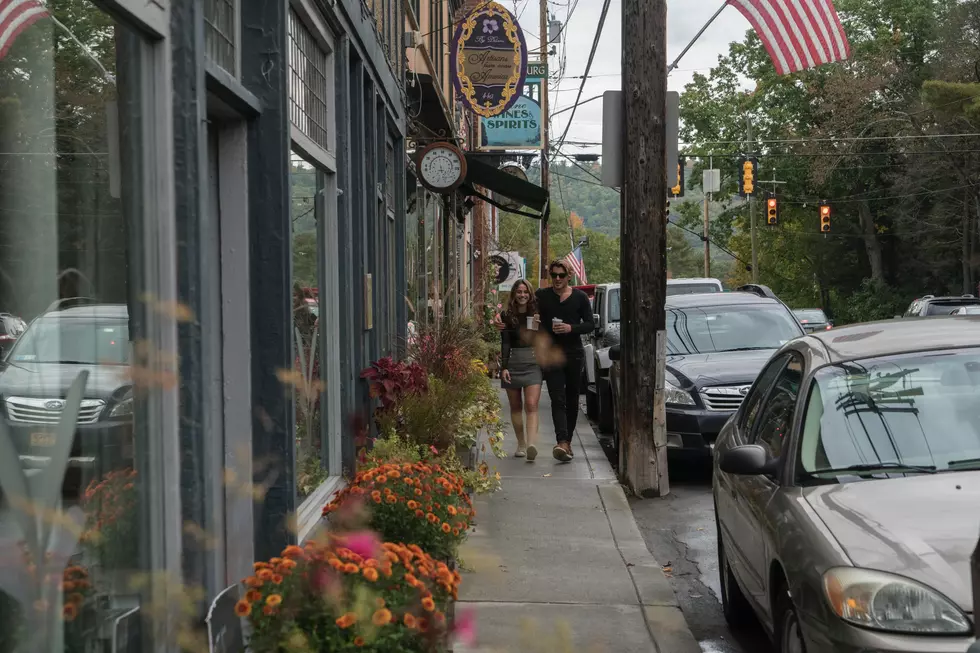
Move over, Vermont! South Jersey taps into maple syrup industry
GALLOWAY — Nothing makes a stack of pancakes or waffles taste so delicious than the maple syrup poured on it.
What if the maple syrup came from New Jersey?
A team of faculty members at Stockton University in Galloway Township has been awarded a three-year U.S. Department of Agriculture grant to promote maple sugaring in South Jersey through research and community outreach.
One of the lead team members and Stockton mathematics professor, Dr. Judith Vogel said two grants have been awarded that overlap by a couple of years. The first grant is for $410,000 and the second grant is for $500,000 to study maple syrup production in South Jersey.
What does the first grant do?
The first grant was a proof of concept.
“Can we actually produce maple syrup at an industry-like level?” she explained. They were never looking to compete with other industries like Vermont or Canada.
But Vogel said they are looking to see if they can create a home-grown industry, a backyard hobbyist industry, and a small farm industry in South Jersey. Coupled with that, Stockton has been charged with some research on the region’s own forests and some outreach to their community.
What does the second grant do?
The second grant picks up where the first grant left off.
“Now that we know we can do this, how can we do it in a way that’s efficient and profitable to the community and we’re not just judging profit by money and business models, but also by community engagement and societal value,” Vogel said.
What is the importance of South Jersey maple syrup production?
Maple syrup production is not common in New Jersey. Vogel said above the line between Lakewood and Gloucester, there are sugar maples that are indigenous to New Jersey soil and climate type. But below that line, there are not a lot of sugar maples.
Rather, there are a ton of red maples in South Jersey. Red maples are not ideal because they don’t have as much sugar as sugar maples, but they do have sugar. So, if people are willing to do the work, they can get the syrup out of them, she said.
In South Jersey, there are the Pine Barrens, Wharton State Forest, and hundreds of thousands of acres that are protected.
“What we’re really looking to do is to bring value to this forestry management plan in a way that is fun, exciting and a little bit sweet, gets the kids really interested in preserving our forests and understanding sustainable forest practices,” Vogel said.
There are over 1,000 acres of forested land on the campus of Stockton University. Vogel said they are tapping 400 trees on the campus but her team is reaching out to the public, to residents, and to anyone who has access to multiple red maple trees.
Hopefully, they are willing to invest the time to collect and process the sap into syrup this winter.
What is the tapping method?
The tapping method is pretty easy. All anyone needs are three basic things: a tap, a tube, and a bucket. This is the focus of what a hobbyist would need. Gravity does the rest of the work as well as the time of year, the climate, and the weather patterns, she said.
Tapping is only done this time of year when there are really cold nights and warm days. It’s called the ‘freeze-thaw” that takes place during late winter and early spring.
During that time, it creates this positive and negative pressure in the tree. It’s freezing at night and it’s thawing during the day. That’s when the sap flows. When it flows, and if you can intercept it with a tap, a tube, and a bucket, then you can collect sap, Vogel said.
She said the real hard part is the boil.
Why is the boil so difficult?
“In order to take that sap and turn it into syrup, you have to boil out a large majority of the water. For us, the best-case scenario is about a 60 to 1 boil. With sugar maple, you can probably get it down to 40 to 1,” Vogel said.
That means with sugar maples, it takes 40 gallons of sap to create just one gallon of syrup. With red maples, it takes 60 gallons of sap to make a gallon of syrup.
So, the second grant has created a hub model. Throughout the South Jersey area, there are six hubs in place where Stockton has supplied some equipment called evaporators to help with the boil.
This equipment boils the sap and siphons out the water from the sugar.
What kind of public involvement is there?
There are various levels of involvement, Vogel said.
Some of it is just taking a tap and tubing, having fun collecting sap, enjoying the process with family and friends, and even keeping the syrup for themselves.
Other sites are more expansive. They have about 20 trees that can be tapped on a property. This may be considered a research site.
“We would ask for more specific data, about how much sap they’re getting, and what the sugar content looks like,” she said.
Scientists would then use the data to correlate how the sugar content is related to their soil.
Anyone interested in helping Stockton tap red maple trees for sap can reach out via email.
What is the breaking news?
New Jersey 101.5 is the first media outlet to receive a “sweet” piece of news from Vogel.
“We’ve just been cleared by the USDA to start selling our syrup. This is the first year that we are going to be able to sell it. Before that, we really used it to thank donors, to give it out to people in the community or who were really involved in the process,” Vogel said.
Any profits made from selling syrup will go directly go back into the program. The money will support this unique, and interesting project in the future.
Happy tapping!
Jen Ursillo is a reporter and anchor for New Jersey 101.5. You can reach her at jennifer.ursillo@townsquaremedia.com
Click here to contact an editor about feedback or a correction for this story.
Here's how to make the best meatballs anywhere
More From Rock 104.1










